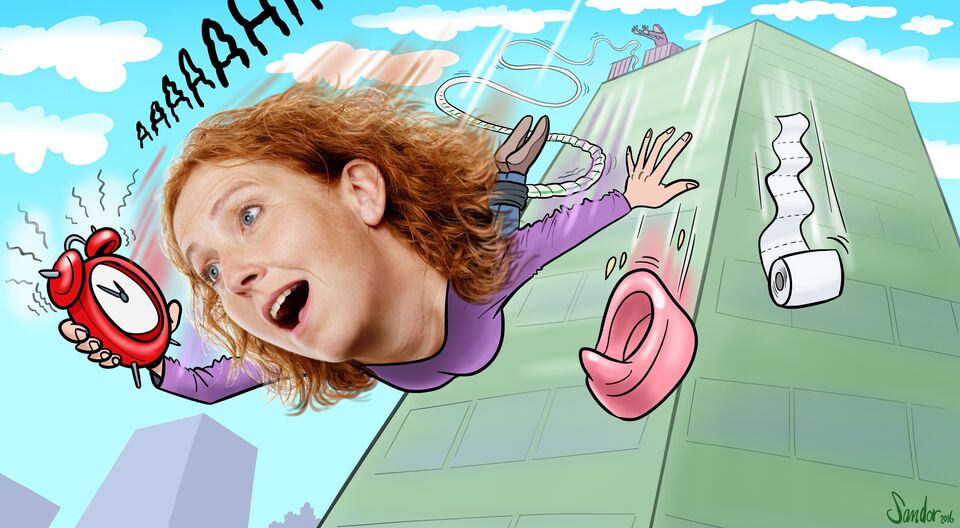Brainmatters | Pee alarm
We are approaching our birthday! By way of festively opening our 60-year jubilee we are going to throw a number of management leaders down from our Vertigo building. Fully secured, of course, although this hardly helps to reduce the initial fright - particularly of the people concerned. In order for all of us to enjoy this ‘Dare’ to the max, the brave deans will be wearing a stress meter. This way their anxiety will be visualized in a peaking heart frequency, a gasping breath, and the breaking out in a cold sweat.
A fine response indeed - the stress response. Whereas stress in popular speech usually has a very negative connotation, in fact that vehement and sudden reaction of our body is tremendously functional; one that can make the difference between success or failure, sometimes even between life and death. The initial stress reaction prepares us mentally and physically to assess a situation rapidly and to act accordingly: fight or flight. Your attention narrows down to the essence, oxygen is mobilized for your muscles, your reflexes quicken, even your immune system gets prepped in order to be able to protect you better in case you should get infected or injured.
Why is it, then, that stress still has such a bad name? There is a strong relation with our consciousness and our capacity to anticipate and to reflect, to weigh up endlessly while we let future or past scenarios pass in review.
The bladder often empties itself in a moment of fright
‘[Why] Zebras Don’t Get Ulcers’, Robert Sapolsky, the writer of the book by the same title, rightly observes. Many zebras in the wild owe their lives to the stress response. Us humans are normally bothered by a totally different type of stressor than a lion looming up out of the bushes, notably one of a chronic kind. Prolonged stress causes your body also to keep the stress response active continuously. What is functional in the short term, in the long term has the effect of exhausting the body, causing risks of ulcers, heart complaints, and depression to increase substantially. So we need to be very careful with this.
Fortunately a jump down from Vertigo has a very short duration, although a short-lived stressor comes with challenges also. Maybe a pee alarm could be a funny expansion of the set of sensors with which our deans will be equipped. Indeed, often the bladder empties itself in such a frightful moment - which is handy when the zebra needs to flee quickly, but which does not make the landing any softer for our heroes.
Yvonne de Kort is Professor of Environmental Psychology at Human-Technology Interaction


Discussion